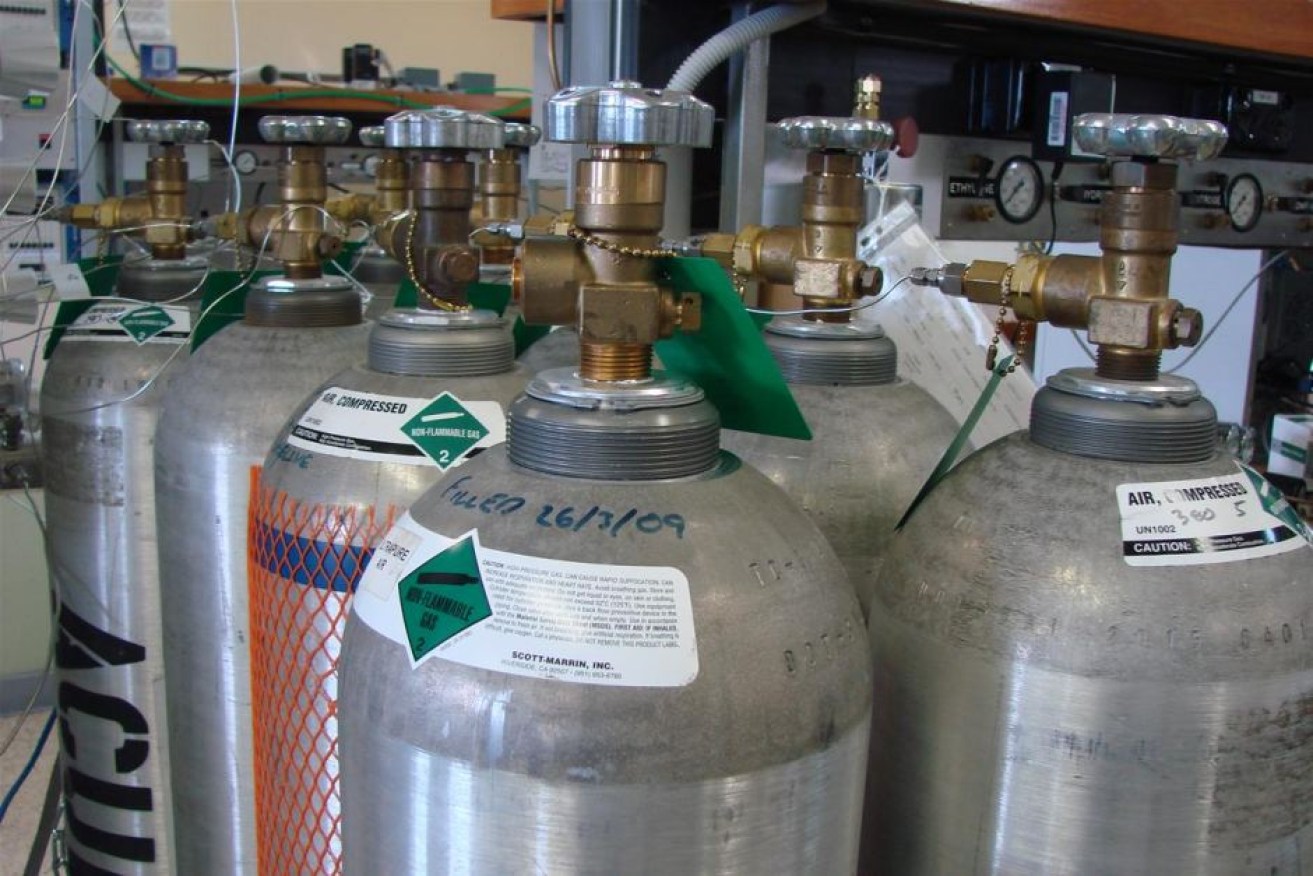ACCC has serious public safety concerns about common gas products

New figures obtained by the ABC show at least 376 people have taken their lives since 2004 using widely available gases. Photo: ABC
The consumer regulator says it is concerned the sale of some over-the-counter gas products has become a serious public safety issue.
New figures obtained by the ABC show at least 376 people have taken their lives since 2004 using either one of two gases widely available for recreation and industry.
The numbers have gone from about eight to 60 a year over a decade.
The ABC has chosen not to name the specific gases involved because of concerns it could lead to copycat behaviour.
The Australian Competition and Consumer Commission (ACCC) said it considered the sale of the products a serious public health and safety issue.
“The ACCC is talking to other parts of federal and state and territory governments and considering what further strategies might be appropriate for these types of … substances,” it said in a statement.
Experts said authorities needed to start limiting access to these and a range of other avenues as part of national suicide-prevention strategies.
Professor Roger Byard is a forensic pathologist in South Australia who did one of the world’s first studies into the products.
He said while the method was used in a low proportion of suicides, nationally it was “increasing at quite a surprising rate”.
“I suppose one of my questions is, where’s it going to stop?”
Professor Byard said their first study predicted use of the method would increase over time.
“After we published it, a number of studies came out from the US and England and Europe showing exactly the same increase in the numbers,” he said.
“I think it’s worth authorities knowing there seems to be an increase in this and looking at monitoring and perhaps investigating further.
“I don’t know if it’s possible to put these products behind a counter so that people actually have to go and request it — they can’t just pick it up and take it through to the cash [register].”
Internet an issue in preventing deaths
Professor Byard said only some of the deaths they studied appeared to be euthanasia.
In 2013 a UK coroner called for tighter restrictions on the sale of the products.
Dr Jo Robinson, who heads suicide prevention research at the National Centre of Excellence in Youth Mental Health, said studies had shown that limiting access did stop deaths.
“For the most part, people who are making an attempt on their lives are actually very ambivalent about dying right up until the last moment, which suggests the degree of impulsivity around the person trying to take their own life,” she said.
“If we can interrupt a suicide attempt or stop somebody making a suicide attempt, or restrict access to that particular means they’ve thought about, what we will do is go onto save that person’s life.”
Dr Robinson has been backed by safety campaigners who want prevention strategies in every region of Australia that take into account local problem spots.
“By restricting access to toxic substances or certain sites we can actually have an impact on suicide rates,” she added.
“There’s evidence to suggest that people then don’t go on and substitute that method with a different method.”
In the United Kingdom, studies have also shown changes to the composition of household utilities and the introduction of catalytic converters had protected people.
Serious safety issue, makers and regulators say
In a statement, the association that represents the industry said the misuse of its products was a deeply concerning issue that the industry took very seriously.
A spokeswoman said it regularly spoke with authorities about safety matters and complied industry standards.
“We are committed to working with leading mental health organisations, retailers and government to ensure continued awareness and education about the safe handling and use of industrial products in the community,” she said.
The ABC reviewed the relevant standards and found none of the products were specifically mentioned nor do they deal with responsible sale of the products.
The ACCC told the ABC it was aware of the problem and there were things that could be done.
“Risks posed can be addressed through a range of voluntary and mandatory strategies including education, warning statements and access controls,” the ACCC said.
– ABC








